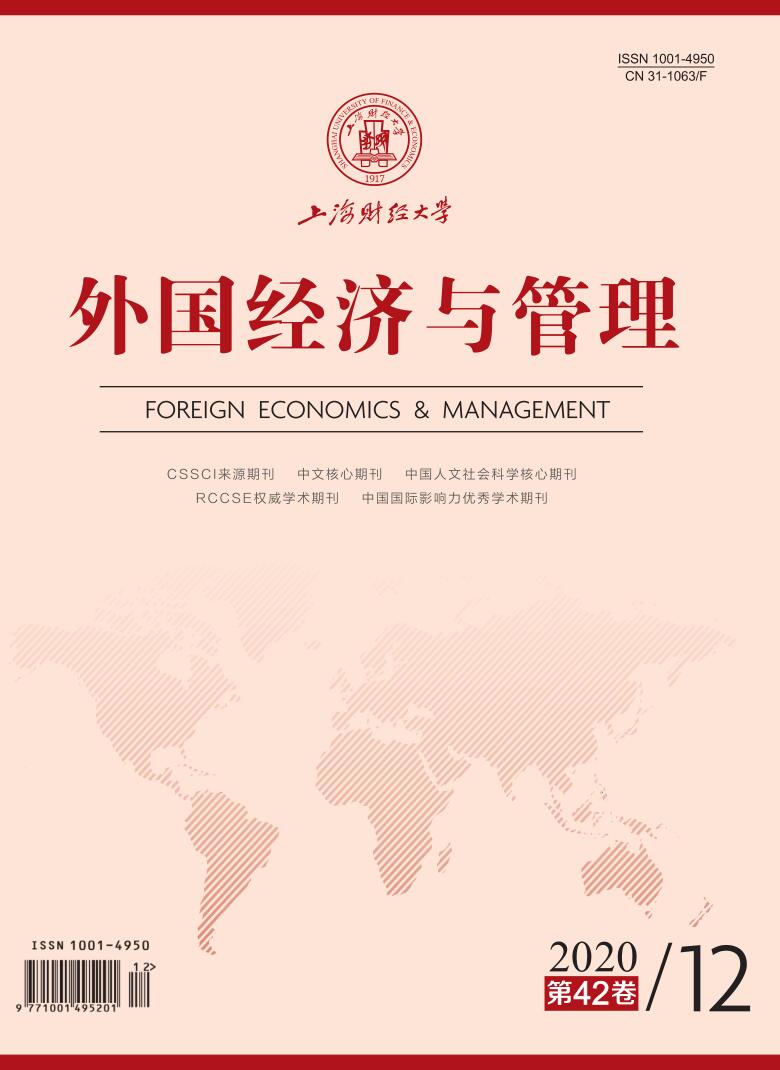Innovation can improve enterprise performance and stock market returns, and influence merger and acquisition selection, so that enterprises can obtain collaborative innovation development. The cultural gene of executives is one of the important factors that affect the innovation activities of enterprises. With the increase of population flow, it is normal for executives to work out of hometown. The off-site environment may have an important impact on corporate behavior by shaping the behavior of executives. How does executives’ work out of hometown affect enterprise innovation and what mechanism does it work through? Through the literature review, we find that the change of entrepreneurs’ risk-taking level and the change of resource reserve are two possible mechanisms that affect innovation development. From the perspective of risk-taking, the better social trust level and legal environment in different places may prompt executives to work out of hometown, which may indicate their preference for risk, or they may choose enterprise decision-making of risk aversion due to the lack of social capital. From the perspective of resources, executives’ work out of hometown may focus on the accumulation of internal cash flow due to financing constraints and other issues, and may also use existing funds to obtain and maintain social capital. Facing the different impacts of different dimensions of risk and resources, this paper studies the impact of executives’ work out of hometown on enterprise innovation. The results show that executives’ work out of hometown can increase the implementation of enterprise innovation projects and the output level, and promote the improvement of enterprise innovation level. Through the intermediary mechanism test, it is found that, combined with the better social trust level and legal environment in different places, enterprises’ risk-taking level is increased, and the cash flow reserve level is improved, which jointly promotes the improvement of enterprise innovation level. It is further found that the promotion effect of executives’ work out of hometown on enterprise innovation will be further strengthened in the case of two job integration, lower separation of ownership and lower equity of the largest shareholder. The conclusion of this paper provides new evidence for investigating the economic consequences of population mobility, and also provides ideas for further exploring the cultural genes of enterprise innovation.
 / Journals / Foreign Economics & Management
/ Journals / Foreign Economics & ManagementForeign Economics & Management
LiZengquan, Editor-in-Chief
ZhengChunrong, Vice Executive Editor-in-Chief
YinHuifang HeXiaogang LiuJianguo, Vice Editor-in-Chief
Executives’ Work out of Hometown and Corporate Innovation
Foreign Economics & Management Vol. 42, Issue 12, pp. 44 - 55 (2020) DOI:10.16538/j.cnki.fem.20200816.202
Summary
References
Summary
[1] Gu Zhihui. Confucian ethics and agency cost in the context of globalization [J]. Management World, 2015, (3): 113-123.
[2] Jiang Fuxiu, Yi Zhihong, Su Fei. Background characteristics of managers and over investment behavior [J]. Management World, 2009, (1): 130-139.
[3] Lei Guangyong, Qiu Baoyin, Wang Wenzhong. Social trust, Auditor Selection and enterprise investment efficiency [J]. Audit Research, 2014, (4): 72-80.
[4] Li Wenjing, Zheng Mani. Substantive innovation or strategic innovation?The impact of macro industrial policies on micro enterprise innovation [J]. Economic Research, 2016, (4): 60-73.
[5] Lu Simian, History of Chinese culture [M]. Peking University Press, 2009.
[6] Pan Yue, Xiao Jinli, Dai Yiyi. Cultural diversity and enterprise innovation: a study based on dialect perspective [J]. Financial Research, 2017, (10): 146-161.
[7] Pan Yue, Ning Bo, Ji Xiangge. Clan brand of private capital: evidence from the perspective of financing constraints [J]. Economic Research, 2019, (7): 94-110.
[8] Zheng Zhigang, Deng Hefei. Differences in legal environment and regional financial development: determinants of financial development based on Provincial Panel Data in China [J]. Management World, 2010, (6): 14-27.
[9] Acharya V, Xu Z X. Financial dependence and innovation: The case of public versus private firms[J]. Journal of Financial Economics,2017, 124(2): 223-243.
[10] Boubakri N, Cosset J C, Saffar W. The role of state and foreign owners in corporate risk-taking: Evidence from privatization[J]. Journal of Financial Economics,2013, 108(3): 641-658.
[11] Guiso L, Sapienza P, Zingales L. Does culture affect economic outcomes?[J]. Journal of Economic Perspectives,2006, 20(2): 23-48.
[12] La Porta R, Lopez-de-Silanes F, Shleifer A, et al. Investor protection and corporate governance[J]. Journal of Financial Economics,2000, 58(1-2): 3-27.
[13] La Porta R, Lopez-De-Silanes F, Shleifer A, et al. Investor protection and corporate valuation[J]. Journal of Finance,2002, 57(3): 1147-1170.
[14] Pessoa A. “Ideas” Driven growth: The OECD evidence[J]. Portuguese Economic Journal,2005, 4(1): 46-67.
[15] Shleifer A, Vishny R W. Large shareholders and corporate control[J]. Journal of Political Economy,1986, 94(3): 461-488.
[16] Zhong R. Transparency and firm innovation[J]. Journal of Accounting and Economics,2018, 66(1): 67-93.
Cite this article
Lei Guangyong, Shao Yue, Zhang Hongxia. Executives’ Work out of Hometown and Corporate Innovation[J]. Foreign Economics & Management, 2020, 42(12): 44-55.
Export Citations as:
For
ISSUE COVER
RELATED ARTICLES





 9250
9250  3304
3304

